Bridget O’Connor, daughter of Patrick and Mary O’Connor was born in Witless Bay on May 30, 1895. She received her early education from the Presentation Sisters in Witless Bay and at the age of fourteen became a student at St. Bride’s College, Littledale. Her academic excellence and her involvement in all aspects of Littledale life in her student years prepared her well for the role she was to play at the College over the next thirty years.
 Bridget taught at St. Bride’s for four years before entering the Sisters of Mercy in January 1917. She was received into the novitiate as Sister Mary Augustine in July of that same year and was professed in July of 1919.
Bridget taught at St. Bride’s for four years before entering the Sisters of Mercy in January 1917. She was received into the novitiate as Sister Mary Augustine in July of that same year and was professed in July of 1919.
Sister M. Augustine had a longer unbroken association with Littledale than any other sister in the congregation, spending her whole religious life there except for two years of study at Catholic University of America. As Headmistress from 1921 until 1942, she was revered by students and teachers alike. Her dedication to the cause of Christian education, as well as her personal interest in every student, were legendary.
Sister M. Augustine died at St. Clare’s on July 20,1942 at the age of forty-seven years. In 1940 when the Littledale campus expanded with the construction of a new school it was fittingly named St. Augustine’s in honor of Sister M. Augustine, who had been so prominent in life and ministry at Littledale for so many years.
Sister M. Augustine’s sisters, Marcella and Kathleen O’Connor, were known to many of our sisters. In 1965 Kathleen, the last surviving member of the family, gifted our Congregation with Kilcash, the O’Connor homestead in Witless Bay. In a letter to Mother Frances, then Secretary General of the Congregation, on June 21, 1965 Kathleen wrote: “I am sure that every O’Connor, from my grandfather who was the first to live there to the last, considers it an honor that the old family place has passed to the Mercy Congregation.” Indeed, Kilcash has been appreciated and enjoyed by many of us for nearly sixty years.
- Read more Sisters stories documenting our Newfoundland Mercy Story
Bridget O’Connor, hija de Patrick y Mary O’Connor, nació en Witless Bay el 30 de mayo de 1895. Recibió su educación temprana de las Hermanas de la Presentación en Witless Bay y a la edad de catorce años se convirtió en una estudiante de St. Bride’s College, Littledale. Su excelencia académica y su participación en todos los aspectos de la vida Littledale en sus años de estudiante la prepararon bien para el papel que iba a desempeñar en el Colegio durante los próximos treinta años.
 Bridget enseñó en St. Bride’s durante cuatro años antes de ingresar en las Hermanas de la Misericordia en enero de 1917. Fue recibida en el noviciado como Hermana Mary Augustine en julio de ese mismo año y profesó en julio de 1919.
Bridget enseñó en St. Bride’s durante cuatro años antes de ingresar en las Hermanas de la Misericordia en enero de 1917. Fue recibida en el noviciado como Hermana Mary Augustine en julio de ese mismo año y profesó en julio de 1919.
La Hermana M. Augustine tuvo una asociación ininterrumpida con Littledale más larga que cualquier otra hermana en la congregación, pasando toda su vida religiosa allí excepto por dos años de estudio en la Universidad Católica de América. Como directora desde 1921 hasta 1942, fue venerada tanto por los alumnos como por los profesores. Su dedicación a la causa de la educación cristiana, así como su interés personal por cada alumno, eran legendarios.
La Hna. M. Augustine murió en St. Clare el 20 de julio de 1942 a la edad de cuarenta y siete años. En 1940, cuando el campus de Littledale se amplió con la construcción de una nueva escuela, se le dio el nombre de St. Augustine’s en honor de la Hna. M. Augustine, que había sido tan prominente en la vida y el ministerio en Littledale durante tantos años.
Las hermanas de la Hermana M. Augustine, Marcella y Kathleen O’Connor, eran conocidas por muchas de nuestras hermanas. En 1965, Kathleen, la última superviviente de la familia, regaló a nuestra Congregación Kilcash, la casa de los O’Connor en Witless Bay. En una carta a la Madre Francisca, entonces Secretaria General de la Congregación, el 21 de junio de 1965, Kathleen escribió: «Estoy segura de que todos los O’Connor, desde mi abuelo que fue el primero en vivir allí hasta el último, consideran un honor que el antiguo lugar de la familia haya pasado a la Congregación de la Misericordia.» Efectivamente, Kilcash ha sido apreciado y disfrutado por muchos de nosotros durante casi sesenta años.
- Lea más historias de Hermanas que documentan nuestra Historia de Misericordia de Terranova


 Prayers for the Sick, Resources from the Wisdom Circles, Items of Interest, Important Dates, Women in Canadian History and a delicious Broccoli Cheddar soup recipe are among the many topics covered in our latest issue.
Prayers for the Sick, Resources from the Wisdom Circles, Items of Interest, Important Dates, Women in Canadian History and a delicious Broccoli Cheddar soup recipe are among the many topics covered in our latest issue.

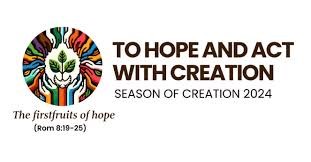 This special season calls the whole human family to unite for the global celebration of prayer and action to protect our common home.In 2024 we unite around the theme To Hope and act with Creation using the symbol “The first fruits of Hope” inspired by Romans 8:19-25. In a world where many people are living in hopelessness, anxiety and fear, we are being called to ground ourselves in a hope that involves collective action, a hope that is centered in God’s promises and in God’s call to care for all of Creation.
This special season calls the whole human family to unite for the global celebration of prayer and action to protect our common home.In 2024 we unite around the theme To Hope and act with Creation using the symbol “The first fruits of Hope” inspired by Romans 8:19-25. In a world where many people are living in hopelessness, anxiety and fear, we are being called to ground ourselves in a hope that involves collective action, a hope that is centered in God’s promises and in God’s call to care for all of Creation. Este tiempo especial convoca a toda la familia humana a unirse en una celebración mundial de oración y acción para proteger nuestro hogar común. En 2024 nos unimos en torno al tema Esperar y actuar con la Creación utilizando el símbolo «Las primicias de la Esperanza» inspirado en Romanos 8:19-25. En un mundo en el que muchas personas viven en la desesperanza, la ansiedad
Este tiempo especial convoca a toda la familia humana a unirse en una celebración mundial de oración y acción para proteger nuestro hogar común. En 2024 nos unimos en torno al tema Esperar y actuar con la Creación utilizando el símbolo «Las primicias de la Esperanza» inspirado en Romanos 8:19-25. En un mundo en el que muchas personas viven en la desesperanza, la ansiedad During her eight years at Mercy Convent, Sister Mary Joseph studied music under the direction of Professor Thomas Mullock, brother of Bishop Mullock and the first organist at the Cathedral of St. John the Baptist. She was the aunt of Sister M. Aloysius Rawlins who played such a significant role in the early days of St. Clare’s Mercy Hospital.
During her eight years at Mercy Convent, Sister Mary Joseph studied music under the direction of Professor Thomas Mullock, brother of Bishop Mullock and the first organist at the Cathedral of St. John the Baptist. She was the aunt of Sister M. Aloysius Rawlins who played such a significant role in the early days of St. Clare’s Mercy Hospital.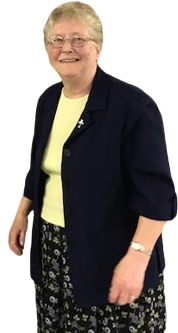
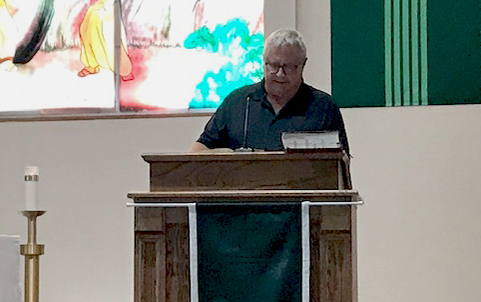
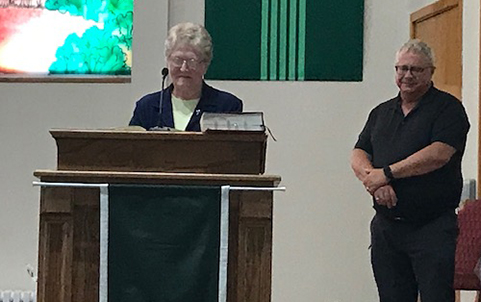
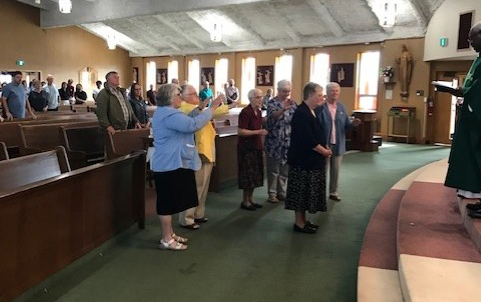
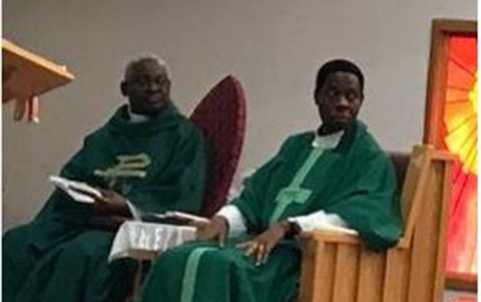
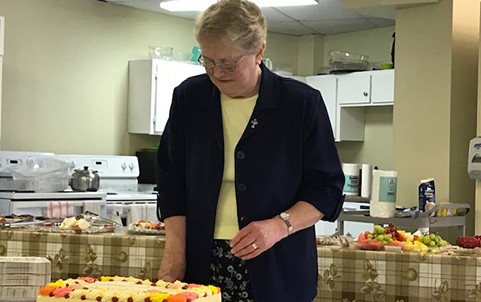
 Israel has agreed to send negotiators to a new round of talks over a ceasefire and hostage release deal, after a diplomatic push from the United States, Egypt and Qatar.
Israel has agreed to send negotiators to a new round of talks over a ceasefire and hostage release deal, after a diplomatic push from the United States, Egypt and Qatar. Prayers for the Sick, Resources from the Wisdom Circles, Items of Interest, Important Dates, Women in Canadian History and a delicious Cranberry lemon loaf recipe are among the many topics covered in our latest issue.
Prayers for the Sick, Resources from the Wisdom Circles, Items of Interest, Important Dates, Women in Canadian History and a delicious Cranberry lemon loaf recipe are among the many topics covered in our latest issue.